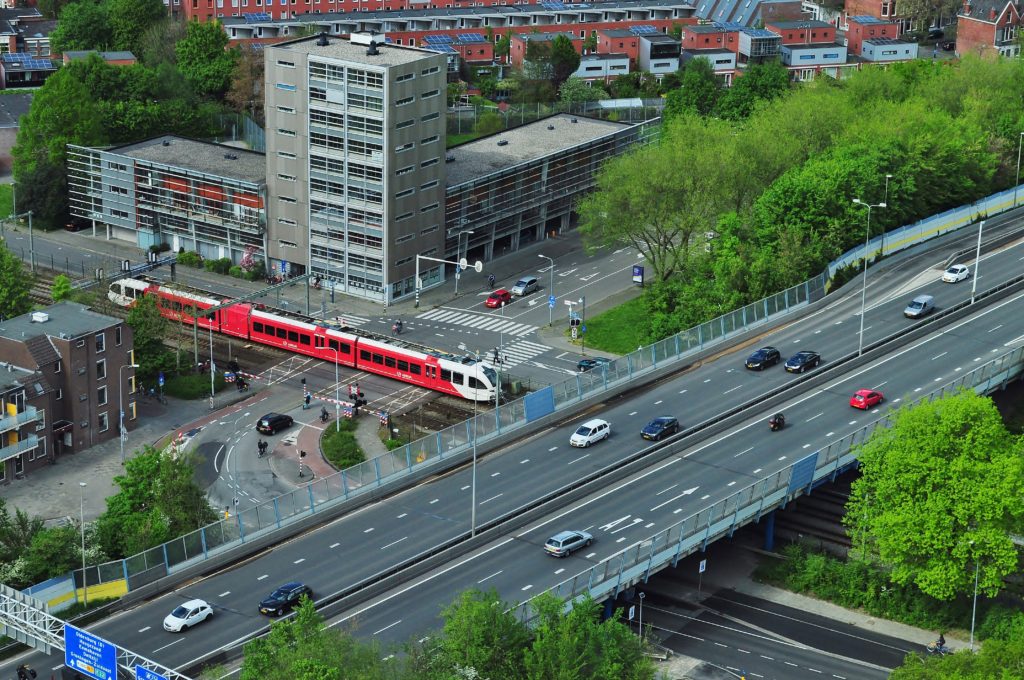Global economic and demographic growth is encouraging the rise of urbanization. As per United Nations, world population will exceed 9 billion by 2050 and it is anticipated that 60 percent will reside in the urban cities. This trend will continue to be strong in emerging economies like China, India, Africa and Latin American countries. Additionally, as ecommerce shipments continue to grow at double digit rates, a shift in shopping preferences contributes to the urban congestion problem. Smart Transportation capabilities provide cities with competitive advantage.
Urbanization raises a complex set of challenges from moving people around large and congested cities to making sure freight arrives on time. Cities should optimize traffic management and parking systems, improve mobility-as-a-service, and supervise infrastructure and existing asset management. Smart transportation continues to evolve and address these concerns as well as help ensuring the safety of the travelers. Quality transit systems are vital to any metropolis, aiding productivity and fostering social mobility.
Adopting data-driven approach, leveraging analytics, machine learning, and digitization will sustain smart transportation. Agile and resourceful smart transportation can lay the foundation for long-term smart cities success, and it will also build a culture of data-driven decision making to manage ever-changing traffic landscape. In addition, smart technologies will also offer benefits beyond traffic management.

Resource Optimization
Statistical traffic data analysis of peak commute times, peak speed violations, and busy locations, towns and law enforcement can effectively allocate officers to those areas where enforcement is critical, and public works departments can better schedule and execute traffic management strategies. Traffic management systems collect data like a day, date, time, and location to enable smart activities, which ensures maximum resource utilization.
Long-term Planning
Traffic data can help in designing safety regulations. Processing and analyzing traffic data allows cities to identify the locations with safety issues. Based on the trend, long-term solutions can be proposed, such as adding more traffic lanes or installing smart signaling systems. This data can assist in planning and budgeting for infrastructure improvements within a city.
Congestion Management
Addressing traffic congestion is a key element of smart traffic management. It assists in serving businesses and maintaining the better quality of life for the citizens of the city. IoT has been assisting travelers with the estimated drive times from point A to point B. Smart cities have been implementing this function by providing heat maps of congested or busy locations. This can be integrated into the GPS for real-time travel recommendations.
The Future of Smart Transportation
Fostering data/information sharing with different traffic management agencies is an important parameter in developing foolproof traffic management systems. Information sharing is incentivized not only for planning purposes but also to recognize the value of information as an input and output to operational processes. For instance, city’s traffic engineers will find vehicle data useful in determining if they need to reroute heavy intercity traffic or reroute heavy vehicles to decongest the interstate highway. Urban planners can use traffic data intelligence to plan new business and shopping districts, parking facilities and residential developments.
Justify the Budget
With all the data at hand, public works and transportation departments will be able to plan ahead of time to spend and allocate their budget for traffic management systems. Municipalities will save money by effective planning, resource allocation, and maximizing asset utilization to counter the existing travel issues.
Data from all traffic devices aid municipalities, law enforcement, carriers and shippers to access real-time information about any location on their mobile devices. This will ensure municipalities to take predictive actions on traffic and parking conditions, prioritize issues, utilize resources more effectively. This will not only monitor congestion and emissions but also control costs and generate analysis for long-term planning of transportation and travel in a city. Cities with Smart Transportation systems make themselves more desirable as a location for factories, warehouses, and cross docks.

















Leave a Reply